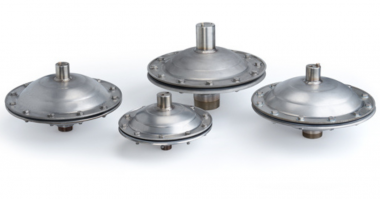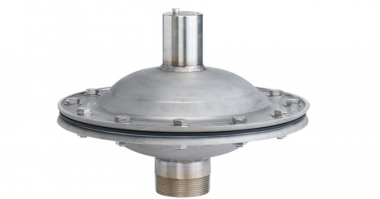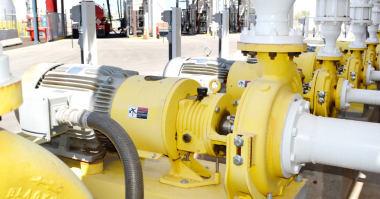In the latest edition of the Centrifugal Pump Minute, James Farley, Senior Director of Product Management for Griswold discusses the different types of impellers as well as specific speed and how it is calculated.
Going forward, you have obviously a variety of different impeller designs; closed impellers, semi-open, and open impellers. The hydraulic performance of these impellers is going to be defined by how the impellers are designed.
There’s a value that’s called specific speed that people within the pump world are going to talk about. The specific speed it’s a dimensionless theoretical quantity that characterizes the pump’s performance and head flow speed. You always calculate this within or at the pump’s best efficiency point. What’s on the slide here are the equations that are used to calculate specific speed. I’m not going to go into that in detail, but I do want to show you the chart that’s shown towards the bottom of the screen.
Here is the specific speed means in terms of the impeller profile or design and how the pump is ultimately going to operate. At the bottom on the left side of this diagram, you’re going to see an impeller that has a very large diameter, that has a very narrow flow path, and it’s a very radial flow path. This is a radial vein area. These pumps are going to provide a higher head but lower flow. There’s a ratio called q divided by h and as that ratio increases and q, in this case, is flow and h is head. As your flow increases and your head decreases. This ratio is getting bigger, then your specific speed is going to get bigger, and your impeller design profile is going to change. As you increase your q over h ratio, you can notice that the impeller diameter begins to be reduced. The flow going through the impeller begins instead of going radially, it begins to go more axial. That means the pumps on the left side of this curve are able to generate a very high flow rate, but they’re operating at very low head pressures. By looking at the impeller, you can begin to understand how this pump was designed. What kind of operation is this pump intended to perform?
To give you kind of a different look at this, there are a few different impellers, the design of these impellers, and where they would land on a specific speed chart. On the far left here, you have what would be a traditional ASME b73.1 low flow impeller, and this impeller is a complete radial design impeller. It’s going to generate very high head pressures very low flow rate. You can tell that by the impeller design. Then as you start moving towards the left, you can see that the vein the profile starts getting wider or taller, and the flow begins to be less radial in nature, more axial in nature, and the specific speed begins to increase.
Watch another Centrifugal Pump Minute video.




Comments